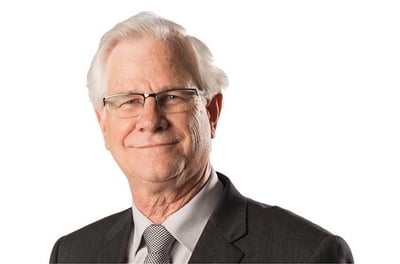Mind of Jacka: A Most Important Trait
Blogs Mike Jacka, CIA, CPA, CPCU, CLU May 18, 2023

Two posts ago, I started what has turned into a series of posts praising aspects of the IIA’s proposed new Global Internal Audit Standards. It wasn’t my intention to go on this long. But, well, you know how it goes.
The first post, Mind of Jacka: Objectivity and Independence, discussed the roles of objectivity and independence as put forward in the Standards. The next post, Mind of Jacka: More Standardy Goodness, was a discussion about three other additions that I thought to be valuable. My intent was to cover them in one post. However, things got a little long, so I stopped after listing and discussing the first two — continuing professional development and vision.
Now, with that brief pause between posts, let us turn our attention to the final point of discussion — one which I feel is the most important addition in the entire document.
Courage
There it is, a word that many of us know is important to our work, but seldom spoken of. Standard 1.1, Honesty and Courage, sits under Principle 1 (Demonstrate Integrity) which is a part of Domain 2 (Ethics and Professionalism).
Let me repeat myself. I believe there is no other change within the new Standards as important as adding the simple word “courage.”
Courage is going to the board with an issue that no one wants to hear. Courage is going into areas where others do not think you belong. Courage is withstanding political pressure and doing what needs to be done. Courage is being willing to stand alone, suffering the slings and arrows of outrageous fortune, when you know you are right.
For those who are not in leadership roles, it is important to understand the pressures your leaders are under — the courage it takes to effectively do their jobs. Warning: It is a pressure that may trickle down to all levels of the department. If you want some idea of those pressures, check out “The Politics of Internal Auditing” by Patricia Miller and Larry Rittenberg. It is eye-opening for those who are sheltered from such attacks. And, for those who are under attack, it is a reminder that you are not alone — a reminder that courage is an important aspect of our profession.
And then there are the less obvious types of courage — the need to stand up to smaller challenges, ones which we don’t often think of in terms of courage. Example: I worked for an individual who was non-confrontational. I won’t go into the issues this caused, but this desire to get along with everyone — particularly leadership — was a crucial flaw. And that meant that we who worked for him were subjected to diminishment of the work we did. If we objected or raised an issue, it meant we weren’t “getting along.” Much fell by the wayside. And the integrity of the department, while not under full attack, took some serious hits.
Looking back through the prism of the new standards, I recognize that what it really represented was a lack of courage. He was living with a fear that was based on trying to get along rather than trying to get things right. And he didn’t have the courage to overcome it. And he didn’t have the courage to build a culture that allowed this to happen.
From the proposed Standards:
“The chief audit executive must maintain a work environment where internal auditors feel supported when expressing legitimate, evidence-based findings, conclusions, and recommendations, whether favorable or unfavorable”
We all face small and medium challenges to our courage every day. We may not see them that way, but that is what they are. And the minute we fold in the smaller moments is the minute we begin to fold in the larger ones yet to come.
Courage has become a watchword in the new Standards.
Amen and hallelujah.
There is a lot of good stuff in the new Standards, as well as food for thought and fodder for discussion. And it wouldn’t be a bad idea for you to start digging in and seeing what the new Standards say about the profession and its future. I don’t agree with everything therein, and I know I’m not the only one. But there is great stuff also. I feel this is indicative of a profession that is committed to becoming better. And it is also an opportunity for each of us to become better, increasing our value to our organizations.


